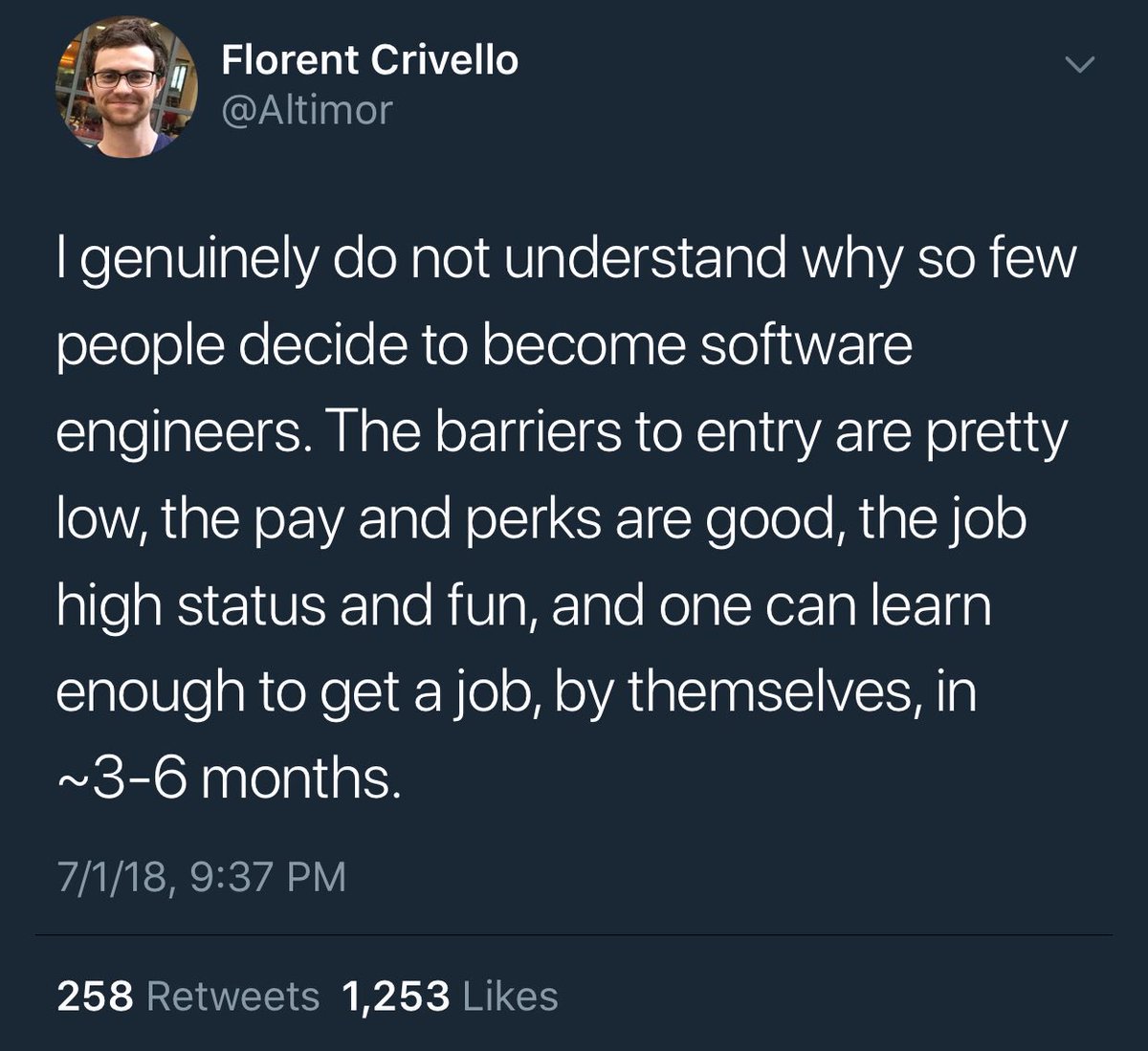More significantly, though, large companies mostly hire from this group, so that’s the number they care about - & they’ve historically driven the larger diversity conversation.
He happened to work on the same one and, I guess, couldn’t fathom one of the other contributors being me.
Eventually, after yet another string of thoughtless sexism on the mailing lists (“because there are no girls here anyway lol”) I quit altogether.
Are code school cohorts more gender-balanced than CS degree cohorts?
Yes, almost always.
NOPE.
It’s always been plain old discrimination, and neither Github nor code schools have fixed that part.
The landscape is way more complicated than it was even 10 years ago.
I mean, it never _really_ made sense. But now it’s just indefensible. We need better data to really understand where we are. [fin]






